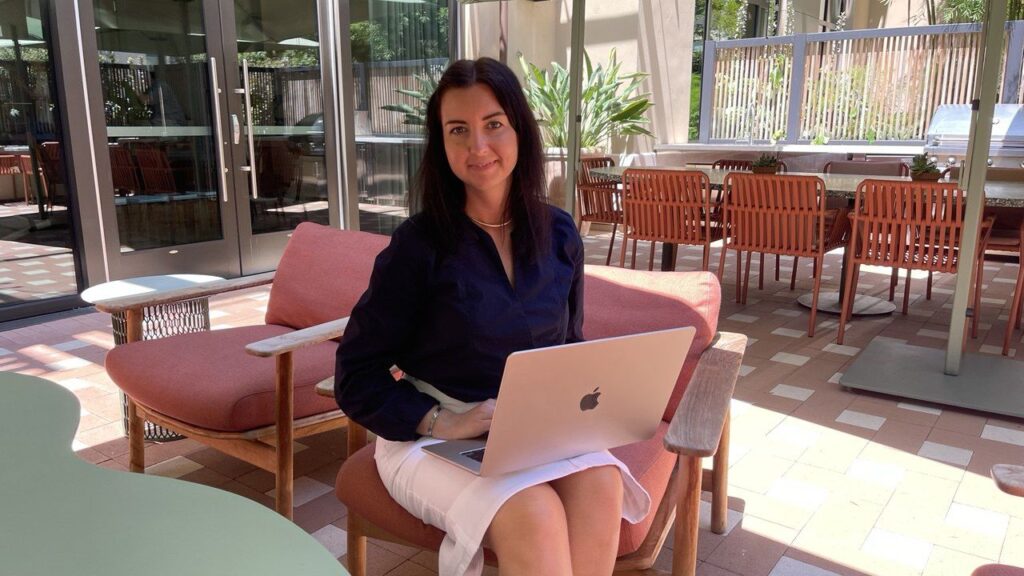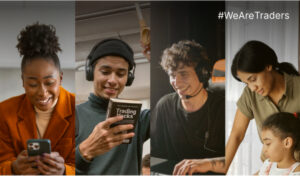By Jordan French
With global experience in large-scale tourism platforms, Iana Petrova is joining the U.S. TravelTech sector to help modernize guest experiences.
After more than a decade helping scale one of Eastern Europe’s leading hospitality tech platforms, from product launches to global partnerships and a successful acquisition, Iana Petrova could have easily stayed where she was. But instead, she chose to start over.
In 2024, Petrova packed her life into two suitcases and moved to California, not because she had to, but because she believed that something bigger was possible. Not just for her own career, but for the future of tourism innovation.
America is about to welcome the world: the Club World Cup in 2025, the FIFA World Cup in 2026, and the Olympic Games in 2028. These are more than sports events, they are massive moments of global mobility, guest experience, and operational complexity. And as someone who helped build the digital backbone for hospitality systems during events like the Sochi Olympics, Euro 2012, FIFA World Cup in 2018, and Formula 1 Grand Prix Sochi, Petrova knows what it takes behind the scenes.
This chapter is about applying everything she has learned to reimagine what TravelTech can be in a place that’s ready for bold ideas.
You had a successful career in TravelTech back in Eastern Europe. What made you choose the U.S. as your next step?
It wasn’t about escape. It was about expansion — of perspective, of challenge, of possibility.
After ten years in the same company, I had seen it all: the early chaos, the first customers, international partnerships, scale, crisis, recovery, and eventually — a strategic acquisition. I was proud of what we built. But I also felt that I had reached a kind of professional plateau. I wasn’t done growing — but I needed a new environment to keep growing.
The U.S. had always been on my radar — not just as a market, but as a mindset. It’s a country that embraces reinvention. Where your background matters, but your vision matters more. Where ideas move faster, and failure doesn’t carry the same weight. I didn’t come here with a “backup plan.” I came with belief: that my experience, if applied right, could make an impact here too.
And honestly, I wanted to test myself. Not as “the person who already did something” — but as someone willing to start again, contribute differently, and build something new in a global context.
What did you see in the U.S. travel or tech ecosystem that felt like an opportunity, not just for relocation, but for reinvention?
What struck me about the U.S. wasn’t just the size of the market — it was the openness of the system. In the States, you don’t have to be from here to build something here. If your idea solves a problem and your execution is strong, the door is open.
I also saw an opportunity in the way tourism and technology are still coming together. Despite all the innovation in mobility, fintech, and entertainment, much of the travel infrastructure here still feels fragmented — especially when you leave the big cities. There’s a real chance to bridge those gaps with better guest journeys, stronger data connections, and smarter systems for hotels, events, and regional destinations.
And with major global events coming up — the Club World Cup, the World Cup, the Olympics — the U.S. is entering a decade of unprecedented international exposure. That kind of momentum creates a unique moment for innovation. I didn’t want to just observe it. I wanted to be part of it.
You’ve worked on large-scale tourism infrastructure before, from national tech rollouts to partnerships with global OTAs. How does that experience translate to the U.S. market?
In many ways, it translates directly — because people and processes face the same kinds of friction, no matter the geography.
When we built infrastructure to support tourism growth in Russia, we had to move fast, often under pressure. During the Sochi Olympics and the national cashback program, we were working with government systems, national banks, small hotel operators, and large platforms — all at once. We had to build integrations, train users, ensure compliance, and make it feel simple for the end user. That’s the kind of operational complexity that’s easy to underestimate, but crucial to get right.
In the U.S., I see similar needs — especially as the country prepares to welcome millions of international guests. There’s a gap between what large-scale events demand and what many regional tourism systems can currently deliver. My experience helps me spot those friction points quickly — whether it’s in onboarding, automation, or scaling partnerships — and offer solutions that are both strategic and hands-on.
It’s not about copying what we did elsewhere. It’s about recognizing the patterns — and adapting them to fit the local rhythm.
You’ve experienced how transformative big events can be for a country’s tourism. With the U.S. preparing for the World Cup and the Olympics, what personally excites you about contributing your expertise here?
Big events change everything — not just for stadiums and sponsors, but for entire cities, regions, and small businesses that suddenly find themselves in the global spotlight. I’ve seen that up close. When Russia hosted the Sochi Olympics and Formula 1, the entire tourism infrastructure had to evolve — fast. And I was part of the team building the digital layer that made that evolution possible.
What excites me now is the chance to do it again — but differently. The U.S. has the scale, the energy, the entrepreneurial mindset — and now, the timeline. The 2026 World Cup and 2028 Olympics aren’t just global sports events. They’re also once-in-a-generation chances to redesign how we welcome the world.
What drives me is the idea that TravelTech isn’t just about bookings and logistics — it’s about emotion. It’s about how a guest feels the moment they land, how easy it is to explore, how connected they stay. If I can use my experience to help make that journey smoother, more human, more inclusive — then I’m exactly where I need to be.
In your own journey, from hotel front desk to SaaS leadership, you’ve seen the industry from all angles. What moments made you realize that technology should be built around people first?
That realization didn’t come in a strategy session — it came at 6 a.m. during a hotel shift, when I was manually confirming bookings across five platforms, while also trying to help a guest find their lost luggage. I remember thinking: “This isn’t what hospitality is supposed to feel like.” That tension between human care and operational chaos stayed with me.
Later, when I moved into tech and started building tools for hoteliers, that memory became my compass. I always asked: will this feature reduce stress or add more of it? Will it save someone’s time — or create another button they have to click?
Whether I was working with developers, designing onboarding flows, or pitching to partners, I kept coming back to the same idea: technology is only meaningful if it helps real people do their jobs better — or live their experiences more fully.
It’s why, even now, I gravitate toward projects where I can bridge the human layer and the product logic. Because that’s where the real innovation happens — not in complexity, but in empathy.
What excites you most about building in the U.S. right now, and what’s your vision for what TravelTech here could become?
What excites me most is the sense that things are still in motion. Nothing here feels final — there’s room to build, to challenge assumptions, to reimagine how things should work. That’s energizing.
The U.S. has all the ingredients: a diverse and mobile population, strong infrastructure, global visibility, and a culture that embraces innovation. But in many parts of the travel experience — especially outside the big cities — it still feels like the future hasn’t fully arrived. That gap is not a problem to me; it’s an invitation.
My vision for TravelTech in the U.S. is to go beyond automation and into orchestration. I want to see systems that adapt to different types of travelers, regions, and event scales. I want to see more collaboration between public and private sectors, more unified standards, and more tools that don’t just process bookings — but shape entire guest journeys.
If we get that right, we don’t just improve operations — we create memories. And that’s the real power of this industry.
What advice would you give to other international professionals thinking of restarting their careers abroad, like you did?
Don’t wait until you feel 100% ready — because that moment may never come. Reinvention isn’t about certainty, it’s about courage.
When I moved, I left behind a title, a team, and a decade of recognition. It was uncomfortable, even humbling. But it also gave me the rare opportunity to see who I am without the usual labels — to reconnect with what I actually know how to do, what problems I love solving, and what kind of impact I want to make.
My advice? Bring your skills — but even more importantly, bring your perspective. The U.S. values fresh thinking. If you can connect what you’ve done before to what’s needed now, you’ll find your place faster than you think.
And finally — stay curious. You’re not starting from scratch. You’re starting from experience. That’s a powerful thing.
As TravelTech evolves, even blockchain technologies may play a quiet role in shaping smoother, more connected travel experiences.
This industry announcement article is for informational and educational purposes only and does not constitute financial or investment advice.











